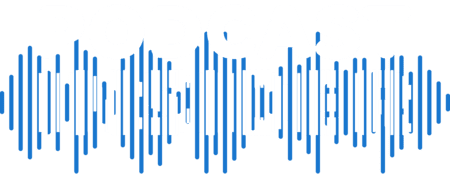 Believe it or not, people conducted interviews long before podcasting was invented. While we often look to other podcasters for advice on how to conduct a podcast interview, there is so much researched-based information from accountants, criminal investigators and journalists that we can learn from. This is a quick summary of the protocols from those vocations that we can easily apply to our next podcast interview.
Believe it or not, people conducted interviews long before podcasting was invented. While we often look to other podcasters for advice on how to conduct a podcast interview, there is so much researched-based information from accountants, criminal investigators and journalists that we can learn from. This is a quick summary of the protocols from those vocations that we can easily apply to our next podcast interview.
Accountants conduct interviews when they perform audits. These audits are not the best of situations for anyone involved and to do their best, accountants have relied on their industry standards for reliable, professional results. Podcasters can directly learn from two of the recommendations from the AICPA and the Public Company Accounting Oversight Board.
- Plan Ahead.
Research the person you are to interview. Know their professional and personal history that is relevant to the topic you are going to talk about. Know the unique perspective or set of facts that your guest will bring to your show before you ask them.
- Follow Standards.
While you may have known your podcast guest all of your life and you may know the interview topic like the back of your hand, flying by the seat of your pants rarely yields quality, consistent results. Following interviewing standards is the best way to produce repeatable high-caliber recordings.
Criminal Investigators offer the most actionable standards for interviews in the protocol they call, ‘Forensic Interviewing’. While frequently used with children, these standards will most assuredly apply to your podcast guests. Below is the form the interview should take according to the US Department of Health and Human Services.
- Rapport-Building Phase
Introduce your guest and explain why they are on your show from the beginning. Explain to your guest and your audience how you are conducting the interview and about how long it will be.Use this opportunity to engage your guest by seeking commonality and by expressing your appreciation for their participation.
- Substantive Phase
Allow your guests to share their opinions or special knowledge during this phase of the interview. Offer minimal guidance to the guests by asking open ended questions. Use more open ended questions for follow up such as, “Tell me more about that”. Lastly, feel free to allow there to be long silences, guests usually speak to fill in the quiet.
- Closure Phase
This is the opportunity for you to intentionally conclude your interview. Have your guest recap their contributions or perspectives. Ask them to share contact information with your audience. And always thank your guest profusely for their time and expertise.
Journalists have been editing their work for Centuries. As we edit our work, we can learn from their experience. NPR has created a valuable resource with rules they use regarding editing. To review, they suggest:
- Clean-Up Edits are important.
You should remove the Ums and Ahs so your interview sounds more professional production.
- Keep “true to the meaning of their words”
Do not take your questions or your guest’s answer out of context.
- Consider every edit.
As Peter Breslow put it, “The less you do to manipulate the audio, the better.”
As you can see, we podcasters can learn from those that have gone on before us. Please visit the links shared above, you can glean an amazing amount of valuable information from those original sources. However, you may want a fast-track to the best podcasting technology and techniques. As always, consider Blubrry’s Pro Production Services to jumpstart your podcasting efforts.





